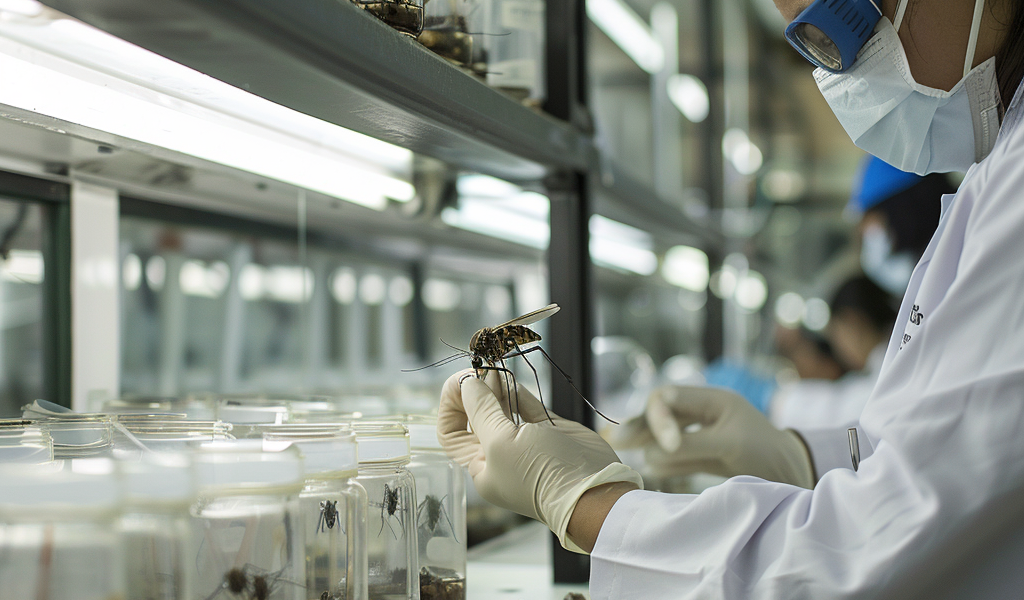A Colombian mosquito factory is at the forefront of the battle against dengue fever and misinformation. Despite the eerie sight of jars filled with larvae in stagnant water and clouds of mosquitoes, this lab plays a vital role in combating the spread of the deadly virus.
For almost a decade, the World Mosquito Program (WMP) has been working tirelessly to replace local populations of Aedes aegypti mosquitoes with genetically modified insects. This initiative aims to halt the transmission of a virus that has claimed the lives of over 4,500 individuals in Latin America and the Caribbean this year alone.
Instead of resorting to harmful insecticides, the WMP employs a groundbreaking technology that involves introducing a living bacterium into the mosquitoes. Biologist Nelson Grisales explains that this bacterium, residing within the mosquitoes, serves to safeguard life without causing harm.
Backed by the support of renowned American entrepreneur Bill Gates, the project has yielded promising outcomes. Health authorities report a significant 95% decrease in dengue cases in the northwestern Antioquia department as a result of these efforts.
Despite its noble intentions, the project has not been immune to conspiracy theories. Grisales highlights the circulation of baseless rumors alleging that the released mosquitoes are equipped with mind-control chips attributed to Bill Gates, capable of causing various unfounded effects. However, the reality is far from these outlandish claims.
Scientists are focusing on breeding mosquitoes infected with Wolbachia, a common bacterium found in other insect and mosquito species. The goal is for the Aedes aegypti mosquitoes to naturally disseminate Wolbachia in the environment.
Wolbachia operates in two key ways: it enhances the mosquito’s immune system, thereby reducing the likelihood of contracting dengue. This innovative approach marks a significant step forward in the fight against mosquito-borne diseases.
At the laboratory of the World Mosquito Program in Medellin, a scientist carefully handles a mosquito infected with Wolbachia, showcasing the meticulous efforts being undertaken to combat dengue fever. Events aimed at preventing tropical diseases feature demonstrations with Aedes aegypti mosquitoes, underscoring the importance of these modified insects in disease prevention.
In June, modified Aedes aegypti mosquitoes were released in the Colombian city of Cali, marking another milestone in the ongoing battle against dengue fever.





